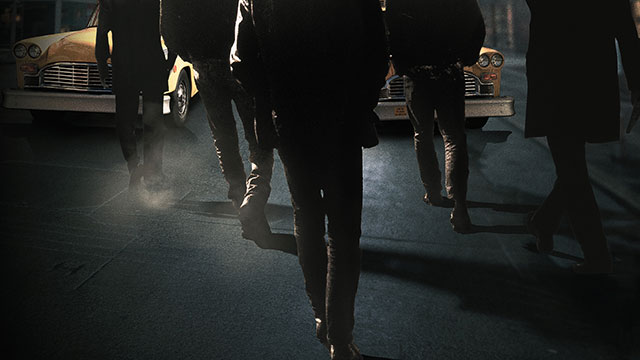As the industry gears up for MIPCOM on Monday, be sure to access all of World Screen’s factual and format resources to make the most out of your market, from insightful analysis and exclusive Q&As in our October editions to screenings opportunities highlighting some of the best new content on the market.
Before you head to the Palais on Monday, be sure to peruse our MIPCOM editions of TV Real—exploring distribution strategies and wildlife fare—and TV Formats, which spotlights entertainment trends. You can pick up physical copies in the Palais. If you fancy discovering some new trailers, visit our Screening Rooms for new factual titles and formats and check out the latest editions of the TV Real Screenings Festival and TV Formats Screenings Festival.
I remember watching Robert Durst’s bathroom hot-mic confession as it played out on HBO in The Jinx; it was one of those eye-popping, text-your-friends-about moments that still happened in 2015, even as the streaming revolution was in full swing. The best documentaries do still deliver their fair share of what-just-happened? scenes. (There were several in HBO’s recent Chimp Crazy, but I resisted the urge to text my friends—there is nothing worse than a spoiler.) But I’m a little unenthused about the overall state of true-crime documentaries today. Like many, I love the genre. This surge in true-crime docs should be a content heyday for me, but in reality, I’m a little underwhelmed, especially by the ones that promise to be revelatory and end up leaving me with more questions than answers (the worst being, why’d I waste my time watching this?). Then there are the ones that ultimately leave you just feeling icky. You never want to be the casual observer of someone else’s suffering.
“Viewers like to binge on true crime, but they don’t want to feel like they’re indulging in the pain of a family or exploiting the victims in any way,” Poppy McAlister, the head of TVF International, said at our TV Real Festival this summer in a session on true-crime docs.
That panel also featured Kate Beal, the founder and CEO of Woodcut Media who chairs the Association of True Crime Producers. “The whole point is to put the victim first,” she said. “You want to know that the memory, the family, the legacy of that victim are treated in the most respectful way.”
True crime leads the factual commissioning market and may be crowding out other genres, but those we spoke to before MIPCOM are feeling upbeat about the sector at large. Our distributors’ survey explores funding innovation and FAST channel expansion. We spotlight the always-in-demand wildlife and nature segment. Dawn Porter talked to us about finding opportunities to explore the topics that move her, from the life of Luther Vandross to the history of the U.S. Supreme Court. Even in reality TV, where it was starting to feel like everything that could be done had been done, Hulu struck a chord with The Secret Lives of Mormon Wives. We talked to Danielle Pistotnik, who was part of the team at Select Management Group that took a TikTok social media influencer scandal and turned it into the streamer’s biggest unscripted reality show this year.
Risk-aversion, though, is a factor everyone has to contend with. Speaking at the TV Real Festival this summer, Ampere Analysis’s Fred Black noted, “Commissioners are continuing to renew their established content while avoiding the risk of new reality shows. While that is a risk-averse strategy in the short term, in the long term, it starts to risk stagnation. We’ve seen the average age of a reality commission go from around 4.5 [seasons] in the middle of 2022 to 6.2 in Q1 this year. Broadcasters are sticking to established titles, even if they only prove middlingly successful, rather than taking a risk on something new.”
In our trend report on entertainment formats, we did hear about a level of risk aversion in the market that is keeping megabrands in plum position and driving an interest in reboots. But even returning properties need creative renewal; we heard from several IP owners about the keys to franchise management, including not being afraid to tweak something that has worked for a long time. And no one is relying solely on their stables of best-known properties. From tapping into local production expertise to driving co-development partnerships, the hunt for the next great format innovation never ends. And it certainly doesn’t stop with what ends up on-screen either; from hub productions to help reduce costs to shared windows across streaming and broadcast, there is plenty of innovation taking place behind the scenes to help new ideas break through. BBC Studios restructured its formats business last year in order to drive its scale and ambition, as we hear from Matt Forde, the global entertainment unit’s managing director, in TV Formats.
As Black stressed at the TV Real Festival, the business needs new creativity to flourish. If risk aversion continues, he said, “it’s likely to lead to audience fatigue. That will lead to a further decline, and that’s a phenomenon that we may already be starting to see close in on the commercial free-to-air channels.”
From buzzy next-generation game shows like The Traitors to new takes on dating like Stranded on Honeymoon Island, the good news is it is still possible to birth a new format megabrand—but smart solutions and the ability to land both on-demand and live audiences are key.
 TVREAL
TVREAL





